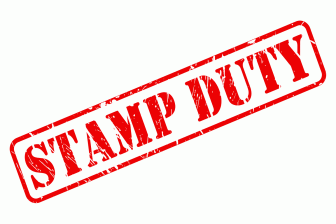 There is widespread speculation that the chancellor Jeremy Hunt could unveil plans today to cut stamp duty in a fresh effort to boost activity levels in the housing market.
There is widespread speculation that the chancellor Jeremy Hunt could unveil plans today to cut stamp duty in a fresh effort to boost activity levels in the housing market.
Cutting or reducing the tax could inject some momentum into the housing market, especially as far as first-time purchasers are concerned.
Home buyers paid an average stamp duty bill of £9,938 during the first nine months of this year, according to research by Coventry Building Society.
Agents are well aware that home movers currently do not pay any stamp duty up to the value of £250,000, and first-time buyers are exempt from the tax unless their property is worth more than £425,000.
But given that official statistics reveal the average home in the UK is worth £291,000, will the threshold for home movers who are not first-time buyers still be reduced back to £125,000 as planned on 31 March 2025?
It is believed that changes might include making the current stamp duty threshold permanent, rather than dropping it down to £125,000 in just over 15 months time.
Under the current stamp duty system, the portion of a property’s purchase price between £250,001 and £925,000 sees the tax charged at 5%, between £925,001 and £1.5m it invreases to 10%, and above £1.5m it is charged at 12% of the purchase price.
Second home buyers and landlords, as you will be well aware, usually pay an additional 3% on top of these rates
Given that the existing tax regime does not help people looking to downsize and may deter them from moving to a property, changes could be introduced to meets their needs.
Another option could be to announce that first-time buyers receive stamp duty relief, removing the £425,000 ceiling.
Jeremy Leaf, north London estate agent, is among those who believes that any stamp duty cut should be focussed towards helping first-time buyers.
He said: “We don’t believe any tweaks may be appropriate unless focused on first-time buyers who are the lifeblood of the market.
“More transactions are good, not just for the property market, but the general economy in view of their multiplier effect on so many other businesses.
“First-time buyers also free-up rental properties to other tenants who are not yet ready to buy, reducing renewals and easing the shortages particularly of desperately-needed affordable homes.
“More available letting property reduces upward pressure on rents because supply is so short, while landlords are also leaving the sector due to increasing tax and regulatory burdens.
“More help for first-time buyers is therefore a win-win for a large number of people.”
However, while a stamp duty cut might be good for sales volumes, some agents will not want a repeat of the pandemic house price boom, fuelled in part by the stamp duty holiday introduced in 2020.
Jonathan Hopper, chief executive of Garrington Property Finders, said: “The impact of a stamp duty cut is instant and obvious to anyone buying a home.
“It will knock thousands of pounds off the total cost, and by giving a boost to the property market, it can send ripples of improved sentiment across the wider economy.
“However there’s a right time and wrong time to reduce stamp duty. The cuts made during the pandemic threw fuel on the fire of rising house prices, pushing up the annual rate of property price inflation to a gravity-defying 13.8 per cent by summer last year.
“Now the impact would be more measured. Average property prices have fallen across the UK over the past year, and the market has slowed dramatically.
“But despite this correction in prices, many would-be buyers are still finding it hard to buy because of the spike in mortgage interest rates.
“So a cut in stamp duty this week would be a useful short-term fix that could offset the affordability squeeze and tempt more first-time buyers back to the market.
“But care needs to be taken to prevent it triggering renewed house price inflation, which would make homes less affordable again and make the tax cuts self-defeating.
“One way to do this would be to make any cuts time-limited or targeted at specific parts of the market.”
Rightmove’s Tim Bannister believes a stamp duty change is unlikely.
“Stamp duty was changed as recently as a year ago, albeit only temporarily until March 2025, so further changes so soon would seem unlikely,” he said.


This would be a stupid move! The evidence from the recent SDLT reliefs shows that, far from knocking ‘thousands of pounds off the total’, house prices increased, negating the saving. This is exactly what happened with ‘Help to Buy’, which lined the pockets of the big developers at taxpayers’ and buyers’ expense.
You must be logged in to like or dislike this comments.
Click to login
Don't have an account? Click here to register